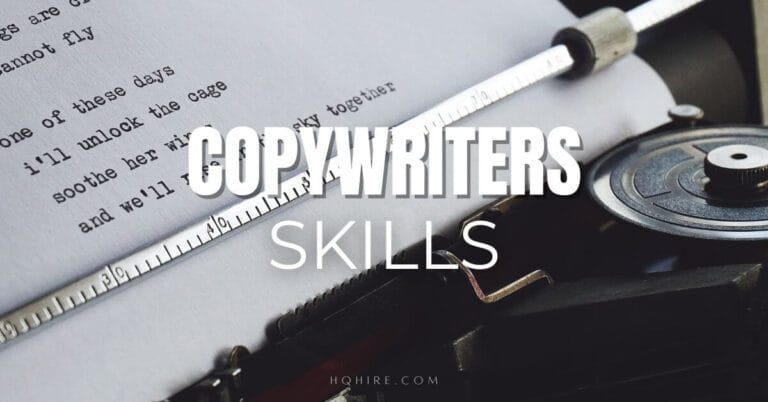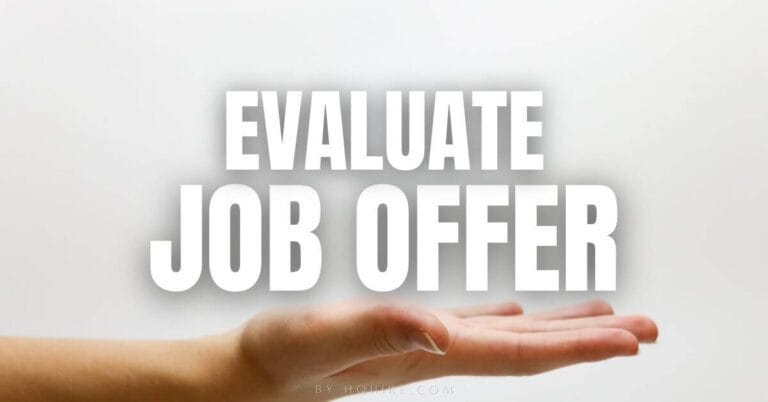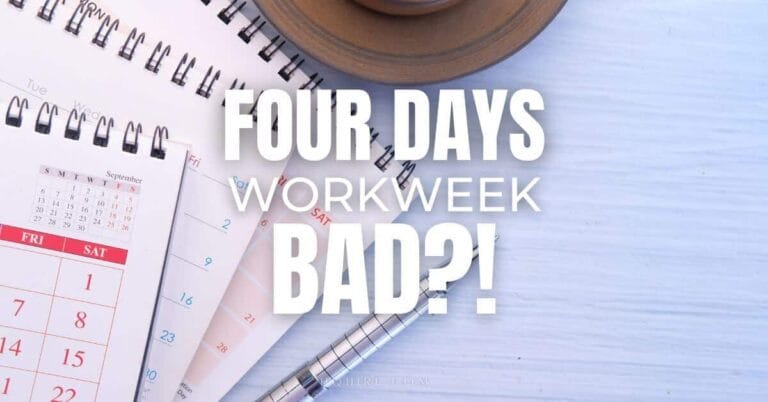Do you know what are the best questions to ask in an interview? Asking your hiring manager the right questions at the end of the interview can get you the job offer fast.
Often at the end of the interview, your interviewer will ask if you have any questions for them. This is one of the most common interview questions asked during an interview.
“Do you have any questions for me?”– Interviewer
When given the opportunity to ask questions at the end of the interview, it is good to prepare a list of questions in advance to ask in a job interview; ask about the team, the company and the position. Make your interviewer feel that you want the job and is the person fit for the job.
Best Questions to Ask at the End of a Job Interview
Asking an interviewer an impressive question during an interview can make all the difference in whether you are offered the job or not. Always prepared two or three questions to ask an interviewer at the end of the interview, this shows that you are interested in the company and the team.
And for your next interview here are the top questions to ask an employer. Consider these sample questions to ask the interviewer at the end of an interview as these can help you made a good impression.
1. What does a typical day in this role look like?
Although job descriptions talk about all the roles and responsibilities, they don’t actually communicate what your daily schedule will look like.
- Something you may want to know is what will you really be doing from the moment that you enter the office till the moment that you check out.
- How much time will you be spending inside meeting rooms or outside meeting clients?
- And given that the working culture between companies differs, what time will you actually be leaving the office?
Why it is a good question to ask?
It can be hard to imagine what it’s like to work in a specific role, especially if you’re not currently in that position. That’s why this is a great question to ask your interviewer.
You spend most of your waking hours at work if the work-life in the job role is not something you want to have for the next few years. It’s best to know it early.
- Will you be working from home?
- Will it be a hybrid work arrangement?
- Will there be a change in the work week?
- Will you need to stay onsite?
- Will there be a weekend shift?
- Will there be a night shift?
Success and happiness in a job boil down to contentment with the nitty-gritty of everyday life.
2. What’s the difference between a “good” and an “outstanding” performance?
This question shows that you’re the type of person who likes to get things done quickly and effectively.
Instead of spending a week filling out HR forms, you want to get yourself into the job quickly.
Asking this question will also show that you want to perform not just “well” in your job, but to exceed the expectations of your employer.
Why it is a good question to ask?
Every company is different, with different types of work cultures, and different expectations. And your potential employer has different expectations as well.
By asking this question, it allows you to understand what is the expectation of your potential employer with a little insider information.
3. What are some of the challenges one might face in this role?
This question gives an impression that you are already in this role and thinking about how will you be overcoming each challenge that you may face in the future.
It also shows that you are well aware that this will be a challenging position but you are prepared to face each of the challenges.
Why it is a good question to ask?
The answer and the response you received will probably by your potential manager who understands the ins and out of the role.
Some of the answers you may receive are the possible difficult colleagues, overtime, cross-functional collaborations, overseas attachments or simply working under pressure.
You can use this information to help you to decide if this role is suited for you.
4. Why did you decide to work at this company?
Unless they are the boss of the company, most interviewers are employees themselves.
Asking this question gives the interviewer a chance to tell you why do they want to work here.
Since most people love to talk about themselves, this also gives you opportunities to understand your potential employer more, before you decided to work for them.
Why it is a good question to ask?
A simple but powerful question that basically gives you an insight into why your interviewer wants to work in the company. What are the reasons that make them excited about working here?
If their reasons coincided with you as well, you have just got yourselves a great fit into the company.
5. What are the biggest challenges the team faced in the past?
While we know not all jobs are perfect. Some are smooth sailing while others come with more challenges than others.
Often when the company is in need of staff, the interviewer might try to paint a perfect picture of what working on the team might look like.
Asking what are the challenges the team faced previously gives you some of the insights that you may not previously know.
Furthermore, asking this question will help you uncover some of the realities the team has been facing recently.
“If you end up joining, you’ll inevitably hear about these challenges and you may have to help solve them, too.”Katie Donohue
Why it is a good question to ask?
Basically asking this question, helps you in 2 ways:
- Insight into the challenges that the team faced previously, is a good indication of the challenges you may face if you decided to join the team.
- An impression that you know that there will be challenges that you may face when you are in the team. Thus you are prepared to face the challenges.
It really helps to know what are you getting yourself into ahead of time. In an interview, not only the interviewer is choosing the right candidate, but the candidate is also choosing the right employers as well.
6. How has this position changed over time?
Someone before you have once held this position that you are currently applying for. And each role in the company evolves over time.
Don’t be afraid to ask HR who has probably been working in the company for quite some time about how the role has changed through the years.
Variation of the questions includes:
- “What was the responsibility of the role?”
- “Who are the others holding this position?”
- “What is the future of this position?”
Why it is a good question to ask?
Getting HR’s perspective on the changes and history of your potential role can give you a much more unbiased insight into your department.
This question also lets your HR knows that you are not only interested in the present of the company, but the future of the company as well.
7. Do you have any questions or concerns about my qualifications?
This is one of the most important questions to ask in the interview. It shows that you are not afraid of critical feedback, in contrast, you welcome feedback.
During your interview, interviewers always make note of red flags on the things they observed or things you say. These red flags can be something from your resume, or some answers you give during the interview.
These red flags are usually discussed without you knowing after the interview process.
Asking this question upfront gives them the green light to ask about any of the things that they are unsure of and are holding them back from giving you the offer letter.
Research suggests that this is one of the most important interview questions you should be asking.
Why it is a good question to ask?
You get a chance to address any concerns that your interviewer may face. You help them to clarify their doubts and give yourself an opportunity to allow them to understand you better.
This simple question can be the difference between an offer and a rejection.
In some cases, your employer might even be impressed with your reply and provide an even higher opening offer.
8. What should I expect to wear on my first day?
You know you need to wear something to work, but you don’t know what should you wear.
- Do you need to wear a shirt and tie or a Polo Tee and pants?
- Can you wear sport shoe, or do you need to wear leather shoes?
Every company culture is different and you as a potential employee want to adapt to the culture of the company you will be working at.
Dress code can be a touchy subject in interviews but a necessary topic to know.
You won’t want to reveal that wearing business wear isn’t just your thing early during the interview.
You may actually decide it is a worthwhile cause to wear a business wear every day because of the role or the pay you get.
Why it is a good question to ask?
You will get the idea of how are you expected to dress in your day-to-day work in the company without suggesting it is a big deal to you.
A simple and innocent question such as what you are expected to wear on your first day also gives them the impression that you want to work here. A desirable trait that any interviewer wants.
Question Not To Ask Your Potential Employer in an Interview
There are many smart questions to ask a potential employer during an interview and some not so smart ones. Avoid asking questions that talks about benefits and remuneration packages as these kind of questions should be much later when the company have confirms on their hiring decision in hiring you.
Here are some other types of questions not to ask during a job interview, questions to avoid if you want to get hired for the job.
1. “What Does Your Company Do?”
This may seem like a harmless question, but in today’s digital age, it’s expected that candidates have done their homework. Asking this question suggests a lack of preparation and interest in the position. Instead, demonstrate your enthusiasm by delving into more specific inquiries about the company’s recent achievements or upcoming projects.
2. “What’s the Salary for This Position?”
Money matters, but discussing compensation too early can send the wrong message. It’s better to let the employer bring up the topic of salary. Focusing on it prematurely can make you appear more interested in the paycheck than the job itself. Instead, inquire about the benefits package or opportunities for career growth.
3. “How Many Sick Days and Vacation Days Do I Get?”
Questions about time off are better suited for discussions during the negotiation phase or once you’ve received a job offer. Asking about this too soon may make the interviewer question your commitment to the role and whether you’re more interested in time off than fulfilling your responsibilities.
4. “Can I Work from Home or Have a Flexible Schedule?”
While work-life balance is important, raising this issue prematurely can give the impression that you’re not fully committed to being present in the office. Wait until the job offer is on the table to discuss remote work options or flexible hours.
5. “When Will I Get Promoted?”
It’s great to have ambitions and career goals, but asking about promotions before you’ve even secured the job can come across as presumptuous. Focus on demonstrating your value to the company first, and once you’ve established yourself, you can discuss your long-term career path.
6. “Do You Conduct Background Checks or Drug Tests?”
Questions about background checks and drug tests should be reserved for discussions after a job offer has been extended. Asking these questions too early can make you seem concerned about potential issues rather than your qualifications for the role.
7. “How Soon Can I Take a Vacation?”
Similar to asking about sick days, questions about vacation time are best left for later discussions. Prioritize discussing your qualifications and how you can contribute to the company during the interview.
Importance Of Asking Question in a Job Interview
By asking the right questions during your interview, you’ll be able to understand what the company is looking for and whether or not you’d be a good fit for the position.
“Do you have any questions for me?” is itself an interview question where it gives you the chance to ask the questions you want about the company and the position.
Asking probing questions in a respectful manner can help you can get a better sense of what the company is and let you know what it look like in the job.
A job interview is a two-way communication, while the company is interviewing you, you should use this opportunity to find out more about the company as well.
“You should be interviewing the employer just as much as they are interviewing you.”
Asking the right question during the interview is one of the best opportunities for the candidate to differentiate themselves from the rest of the candidates.
By being prepared with thoughtful questions, you can show that you have done your research and are interested in the position, the organization, and your career.
Read Also:
- “Why do you want to leave your Current Job?” Best Reasons for Leaving
- How to Answer “Tell Me About Yourself” Job Interview Question (Tips and Examples)
- How to Answer, “Why Should We Hire You?” – Interview Questions
- 10 Common Job Interview Questions and Answers (Examples & Tips)
- 8 Best Questions to Ask in a Job Interview (Interview Secret)
Join over 11,000+ achievers who are committed to achieving their career goals!






